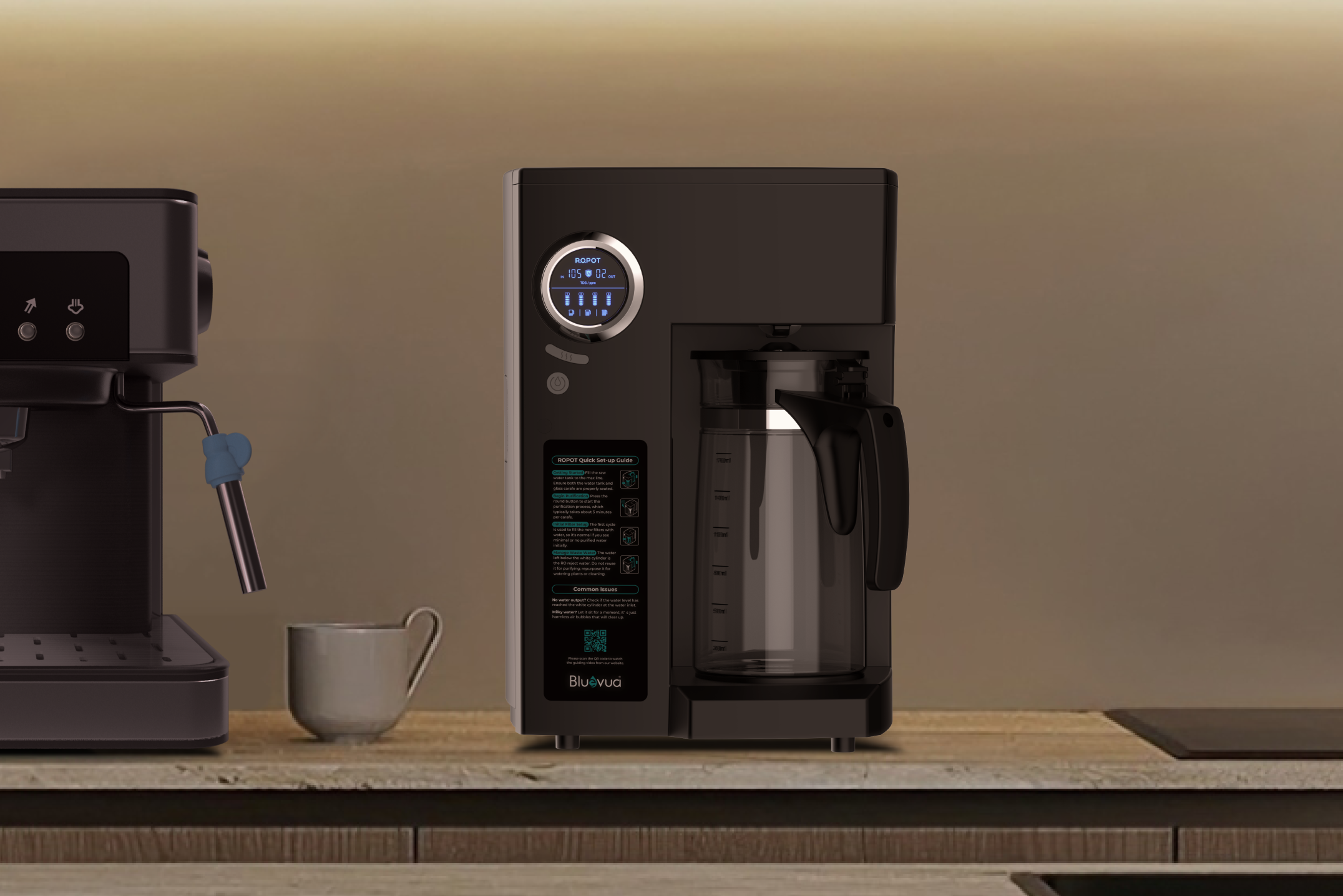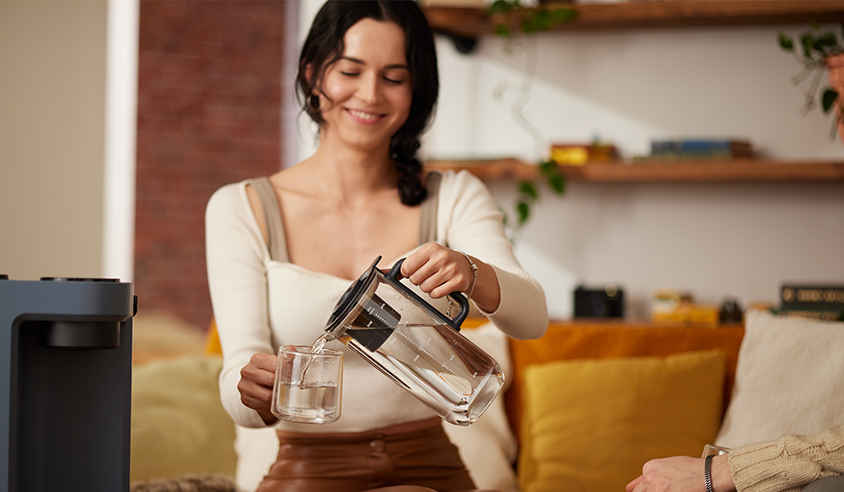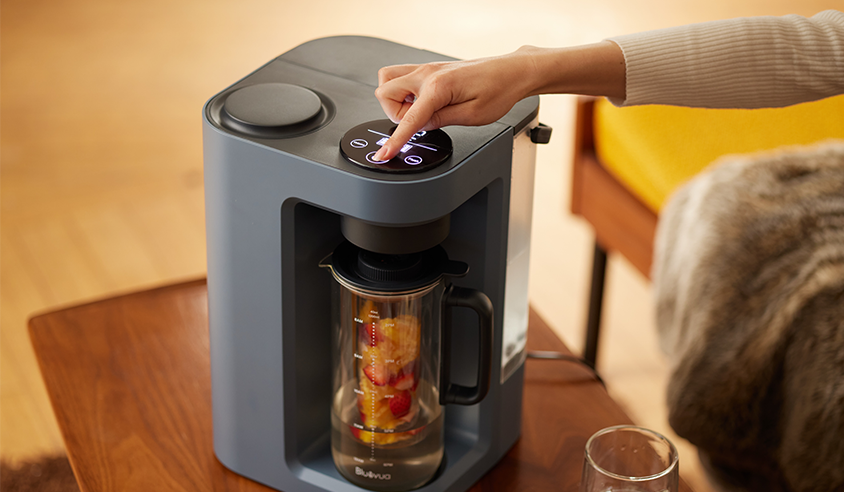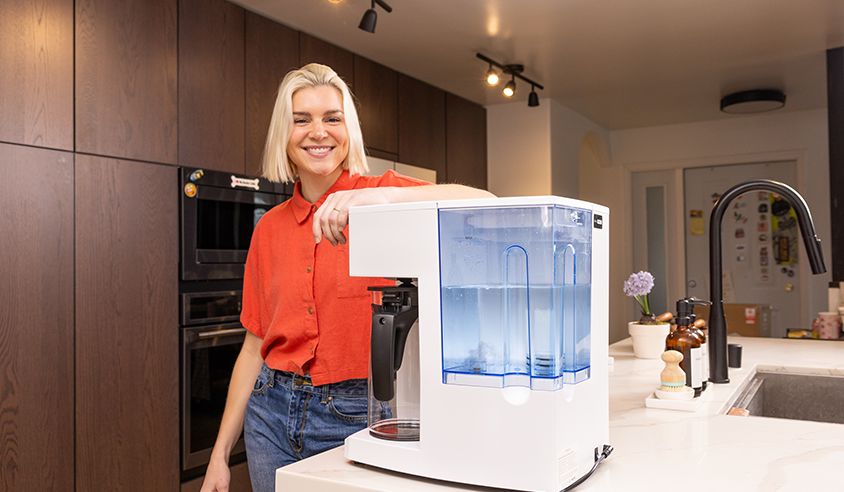It's not just in your head, some water does taste better than others.
You might not have thought about "What ensures water of the best purity?" before. But when you look into the expansive market of countertop reverse osmosis systems, it becomes a question that needs answering. Despite all the reverse osmosis systems boasting advanced RO technology, different system designs can have huge differences in the taste, purity, and overall quality of the filtered water.

How Hidden Plastic Reservoir Contaminates Filtered Water
Based on market research, over 90% of countertop RO water systems use plastic water reservoirs. The design stores the filtered water in the built-in plastic reservoir and dispenses it into your cups or bottles once the water-making process is initiated. The prefiltered mechanism shortens the waiting time for the water. However, like many trade-offs, there's cause for concern lurking beneath the surface.
Research results from the University of Copenhagen unveiled that more than 100 types of plastics seep into the water from reusable plastic bottles after 24 hours of storage. The longer the exposure to the plastic container, the more time plastics have to diffuse into the water.
Plastics do not benignly break down like natural substances. Instead, they break apart into infinitely smaller pieces that remain plastic, including nanoplastics. Nanoplastics are less than 1 μm in size, and unable to be seen by the naked eye. And let's face it nanoplastics are potentially more dangerous than plastic particles because they are small enough to enter the body's cells and tissue. Consequently, even when accessing purified water with a high-quality glass cup from the system, the presence of plastics in the water remains a significant concern. Over time, this can lead to an unpleasant plastic taste that users may notice in their water.
Furthermore, the built-in water reservoir is integrated into the entire system and thus inaccessible. As a result, cleaning the water reservoir is impossible without detaching the system, which can be challenging without professional assistance. However, the perpetual humidity of the reservoir provides an ideal breeding ground for bacteria and other organic matter, inevitably raising hygiene concerns.

Why Bluevua Glass Carafe Can Ensure Best Purity
Preventing stagnation in the plastic reservoir is crucial for avoiding secondary pollution, and this is where the glass carafe comes into play.
Replacing the plastic water reservoir with a glass carafe minimizes water exposure to the plastic. The straightforward upgrade ensures that the filtered water flows directly into the glass carafe. The fresh purity is maintained from the reverse osmosis system to your cup. With each refreshing pour, the glass carafe ensures that every sip maintains a testament to freshness and untainted integrity.
Cleaning won't be a problem anymore. Simply rinse the carafe under running water, or for even greater convenience, it can be placed directly in the dishwasher, making cleaning a breeze. This streamlined cleaning process ensures that maintaining the carafe's hygiene is hassle-free, allowing for a consistently pristine and enjoyable experience with every use.

At Bluevua, we uphold our commitment to providing clean, convenient hydration by steering clear of using storage tanks from the very beginning.
Bluevua glass carafes are made of food-grade high borosilicate glass. Unlike the commonly used soda-lime glass, high borosilicate glass, made by melting sand with boron trioxide, has demonstrated high resistance to thermal shock and acid. This means that the Bluevua glass carafe has the minimal possibility of leaching into your water, even when exposed to varying temperatures and acidity. It serves as the ultimate guardian of the pristine purity of your water.






Leave a Comment
All comments are moderated before being published.
This site is protected by hCaptcha and the hCaptcha Privacy Policy and Terms of Service apply.